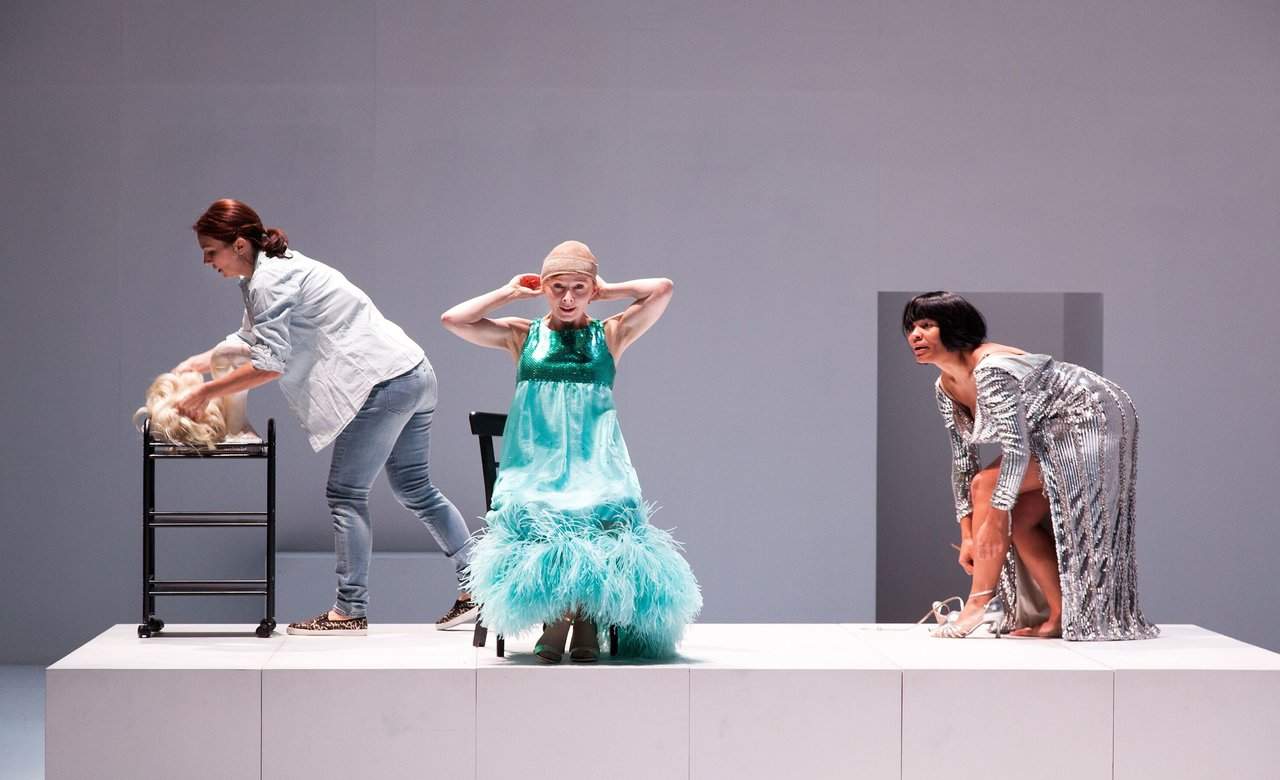Love and Information - Sydney Theatre Company
An impressive and stylish Australian premiere of Caryl Churchill's modern classic.
Overview
Caryl Churchill’s Love and Information is as elusive a play as its central question; what is consciousness? The collection of small scenes answers this question with the notion that love draws us together and information extends our reach outwards, symbolised by a tree planted on set by Glenn Hazeldine towards the end of the show. But there are many more questions than answers: does God have a God, and does that God have a God? Does mathematics relate to reality or is it a human construct? Is there such a thing as free will or is it down to genetics? And, most importantly, does God speak English?
Churchill’s work can be recognised by one-word play titles, truncated sentences and loaded pauses. In Kip Williams' production of Love and Information, the pauses are thankfully meaningful and there are only one or two moments when a performer stops their sentence mid-way through without cause.
Churchill’s script is like a choose-your-own-adventure play, with flexibility as to which scenes are included, which characters play which scenes and also allows for the addition of new improvisations — which Williams and the cast have devised with expert skill. The group has retained the spirit of improvisation and ensemble in the finished product. The constant scene changes (the shortest scene is two words long) demands a lot from the cast and they manage it with ease and good humour.
Anita Hegh opens with a comic dating scene in which she explains her job as a research scientist to her prospective date, failing gloriously to describe slicing open mice brains in a palatable manner. Glenn Hazeldine makes a compelling hysterical author trying to avoid the press; a minor exchange with a journalist sends him into a spiral of existential angst. These two stand out as masters of comedy, and the rest of the cast (Marco Chiappi, Harry Greenwood, Zahra Newman, Anthony Taufa, Alison Whyte and Ursula Yovich) all thrive on the playfulness of the production. That’s not to say it doesn’t have gravity. Alison Whyte’s performance as the bereaved at a funeral under falling snow is moving indeed.
Designer David Fleischer’s plain white set with moveable white cubes is brought to life by Paul Jackson’s evocative lighting, and music by Melbourne composer The Sweats (Pete Goodwin) helps to effectively integrate the scene changes into the dramatic action. The creative team under Williams’ direction has elevated what could be an unruly string of scenes into a cohesive, warm 90 minutes of damn good, thought-provoking theatre.





